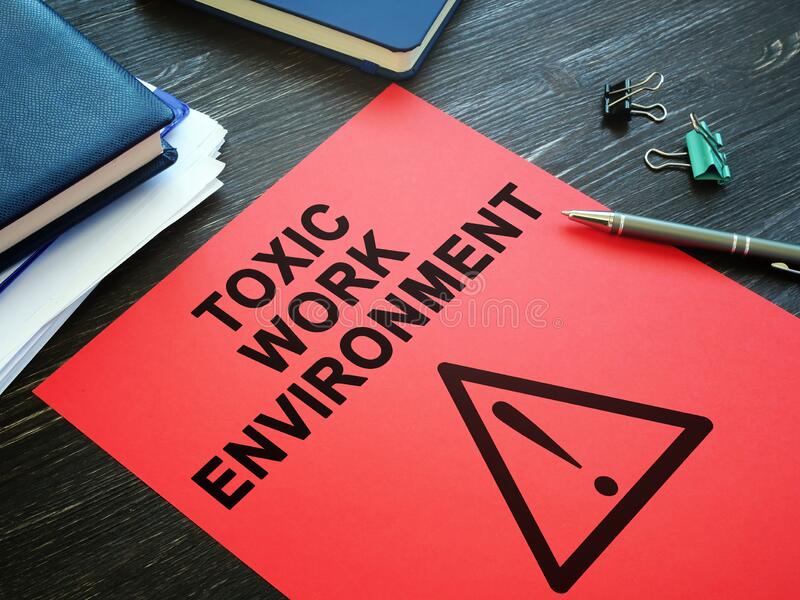
Can an employee be dismissed for expressing a political opinion?
As the 2022 federal election nears, and numerous state elections coming up, many Australians will no doubt feel more inclined to publicly express their political opinions. Social media and the workplace are among the most common forums where Australians choose to express their beliefs. But in doing so, some could face the risk of a justified or unfair dismissal by their employer. So, this begs the question: when can an employee be dismissed for publicly expressing their political opinions?
The age of COVID-19 has seen an exponential increase in the public expression of political opinions across society. Australians now regularly do so on social media, often without regard to how such actions can affect their employment.
The question of how far employer policies can apply to the personal lives of employees is now increasingly relevant. And the perceived overreach of employers into their employees’ personal lives often creates conflict between the two.
This has been illustrated in recent cases where employees have taken legal action against employers. Namely, after being dismissed for expressing their political opinion. Let’s look at one such case.
Census collector takes the Australian Bureau of Statistics to court for unfair dismissal
In late 2021, a former casual Census collector for the Australian Bureau of Statistics (ABS) took her ex-employer to court. She lodged a general protections claim for unfair dismissal, discrimination and adverse action after her employment was terminated for expressing a political opinion on LinkedIn.
The casual Census collector was hired to work for the ABS from July to October 2021. But in September, she was dismissed after her LinkedIn post was reported to her employer. Only in August had the employer reminded the employee to remain apolitical during her employment. The employer had cited that this was necessary to prevent damage to public confidence.

How the government’s Code of Conduct factors into the case
As a government employee, the woman’s employment was subject to the Australian Public Service (APS) Code of Conduct. And the employer had explained the relevant terms of the APS to the employee. The APS states that public servants “have a right to personal and political expression on social media.” This, however, must be balanced with the “obligations of APS employment, and the need to be seen as trusted and impartial public servants.”
Regarding whether a political expression could damage public confidence, the employer specified certain terms. The individual circumstances of the social media post must be considered, and the seniority of the relevant employee. Also, the relationship between the social media post and the employee’s activities at work. How controversial the employee’s political view is also factors into the determination.
What is the employee demanding through legal action?
The termination of the woman’s employment led to her seeking a public apology from the ABS. This included acknowledgement via LinkedIn that the ABS had dismissed a casual employee for expressing their personal political opinion. The employee also sought compensation for legal costs and wages lost up to October. She also demanded the name and report of the person who reported her LinkedIn post to the ABS. As of writing, the case is still ongoing.
Are there laws protecting an employee’s right to express their political beliefs?
Unlike in the United States, where freedom of speech is codified in the US constitution, the Australian constitution doesn’t offer similar protections. This is often contrary to popular belief among Australians. The Australian constitution does ensure an implied right to freedom of political communication. But it doesn’t protect an employee’s expression of political beliefs and thoughts.[1]
Australian law – specifically the Fair Work Act 2009 – does offer protection for an employee’s political opinions, however. Under section 351(1), the Act legislates that it’s unlawful for an employer to discriminate and consequently dismiss by ending the employment on certain grounds. One of these grounds is an individual’s political opinions and beliefs.
According to the Act, a political opinion or belief includes:
- Membership of a political party
- Expressed political, socio-political, or moral attitudes
- Civic commitment
An employee’s political beliefs aren’t protected by the Act, however, if they engage in politically motivated acts of violence.[2]

What if an expression of political belief breaches an employer’s values or policy?
As stated in the Fair Work Act 2009, an employer must respect every employee’s right to exercise their political opinions. This includes political opinions expressed within or outside of the workplace. For instance, by posting your opinion on social media or attending a political protest. That is, provided the employee doesn’t commit an act of violence or destroy property at the protest.
However, the Act also states that if an employee’s opinions or beliefs contravene their employer’s values or policy, then they can be dismissed. Let’s look at a recent case where an unfair dismissal application was rejected on these grounds.
Public servant who criticized government policies has unfair dismissal ruling overturned
In 2013, an employee of the Department of Immigration and Border Protection (now the Department of Home Affairs) was dismissed for expressing her political beliefs. The employee had operated an anonymous Twitter profile during her employment. And she had regularly posted opinions that were highly critical of the Australian Government and its immigration policies.
The Administrative Claims Tribunal declares an unfair dismissal, but the High Court overrules
An internal investigation linked the woman to the anonymous Twitter profile. Her employment was thereafter terminated for breaching the APS Code of Conduct. Subsequently, the employee made an unfair dismissal application with the Administrative Appeals Tribunal. And the Tribunal found that the woman’s dismissal had impeded her implied right to freedom of political communication.
But in 2019, the High Court rejected the employee’s unfair dismissal application. It ruled that the woman’s dismissal had not impeded her right to freedom of political communication. And that in its purpose of maintaining an apolitical public service, the APS Code of Conduct was proportionate.

Can an employee be dismissed for expressing highly controversial political beliefs?
Another unfair dismissal case involving a casual airport baggage handler provides an answer to this question. In 2015, the baggage handler was dismissed by his employer for posting his apparent support for ISIS on Facebook.
The post was reported to his employer, Aerocare Flight Support Pty Ltd, who terminated the employee’s employment on several grounds. Firstly, that he had breached Aerocare’s social media policy. Also, the conditions of his employment manual. And, that his Facebook post jeopardised Aerocare’s relationship with its client and brand.
The Facebook post featured the comment ‘We all support ISIS,’ which caused some of his colleagues to feel ‘unsafe.’ They were also alarmed by his possible actions within their security conscious, airport environment.
Making an application of unfair dismissal with the Fair Work Commission
In 2016, the employee took his unfair dismissal case to the Fair Work Commission. In assessing whether the employee’s conduct was a valid reason for dismissal, the Commission considered several factors. Namely, that as an apparent ISIS supporter, the employee worked in a secure airport environment. And, that he had access to baggage facilities near aircraft.
In his defence, the employee asserted that his support for ISIS on Facebook was made in sarcasm. And this was the critical, deciding factor in the case. The Commission highlighted that Aerocare hadn’t performed a thorough investigation of the employee’s conduct. Namely, it found that the company hadn’t viewed the rest of the employee’s Facebook timeline. If it had, Aerocare would have discovered that the employee wasn’t an ISIS supporter.
The Commission also found that the company could have asked the employee for an explanation of the post. And if he were given the opportunity, the employee would have satisfied Aerocare that he wasn’t an ISIS supporter. It was also found that the employer only spent ten minutes deliberating on the decision to dismiss the employee.

The Fair Work Commission upholds the unfair dismissal
The Commission, however, did accept that the employee’s ISIS post breached Aerocare’s social media policy. It highlighted that it wasn’t acceptable for an employee in an airport environment to post apparent support for a terrorist organisation. That is, even if it was intended as sarcasm or satire.
Despite this, the Commission found that there was no valid reason for the employee’s termination. The ruling upheld his claim for unfair dismissal, and the employee was awarded compensation of eight weeks’ pay. That amount, however, was reduced by 40% because the employee had breached Aerocare’s social media policy.
What can employees learn from unfair dismissal cases?
The Fair Work Act 2009 ensures that an employee can’t be dismissed simply on the grounds of expressing their political opinions. However, they can be if their opinion expressed contravenes the policy of their employer.
This is evident in second case we highlighted above, where the High Court decided to reject the unfair dismissal application of the employee. The employee’s actions contravened the APS Code of Conduct, which all government workers are subject to. The lesson for employees is that they should be careful not to breach the policies or values of their employers.
Can an employee be dismissed?
When posting comments on social media, many of us don’t think twice about the possible implications. An employee’s expression of political opinion is of course protected by law. But even so, every employee should ensure they don’t post anything that could see them caught up in an unfair dismissal case.

Conclusion to “Can an employee be dismissed for expressing a political opinion?”
I hope this article has been inciteful for you. My personal view is you cannot win the arguments in discussion politics in your employment. You simply don’t know what is going on in someone’s mind. Some employers are easy going, couldn’t care less, then you set off some trigger. You can make 9 friends in the office, then one enemy that you then have for life. Its up to you of course.
AWNA can help you in unfair dismissal claims, general protections, forced to resign. Anything to do with Fair work Australia, workers rights, casual employees, abandonment of employment, whatever call us its free, prompt and confidential.
Call 1800 333 666
Articles similar to Can an employee be dismissed for expressing a political opinion?
Trans species employee rights at work
Workplace diversity and rights
[1] Dan Trindade & Matt Condello, ‘The implied freedom of political communication does not help an employee who disagrees with their employer’s policies’, Clayton UTZ, (online, 28 September 2017) <https://www.claytonutz.com/knowledge/2017/september/the-implied-freedom-of-political-communication-does-not-help-an-employee-who-disagrees-with-their-employers-policies>
[2] Fair Work Commission (2018), <https://www.fwc.gov.au/general-protections-benchbook/other-protections/discrimination/political-opinion>






